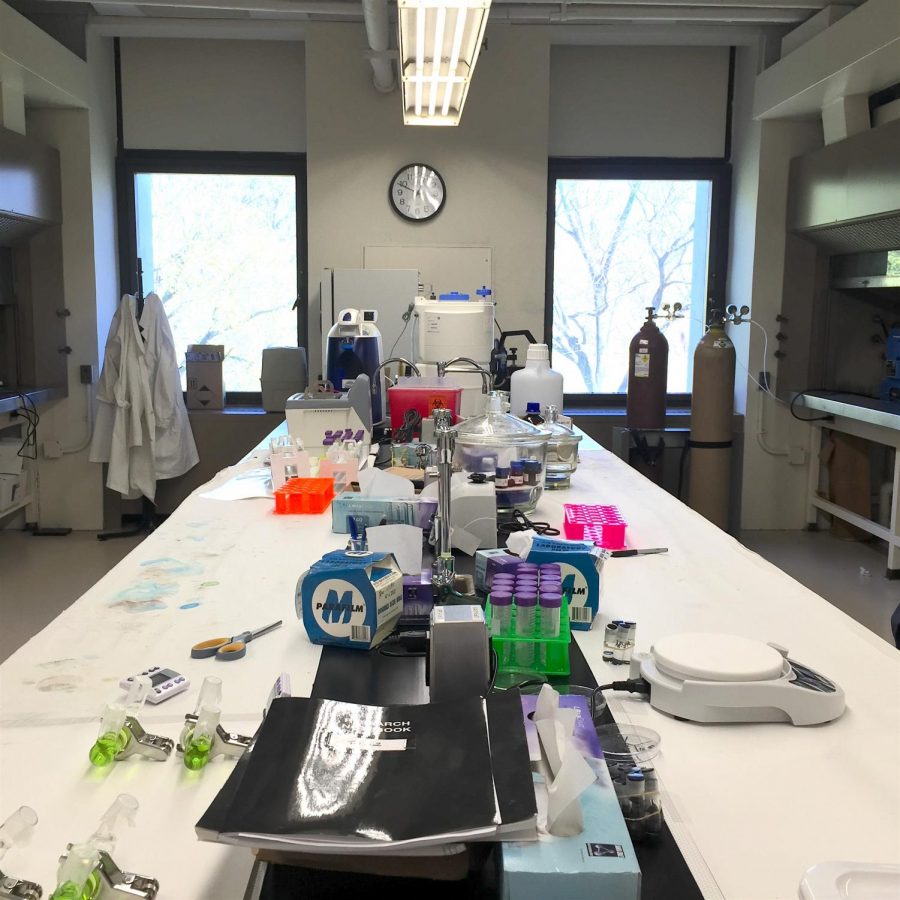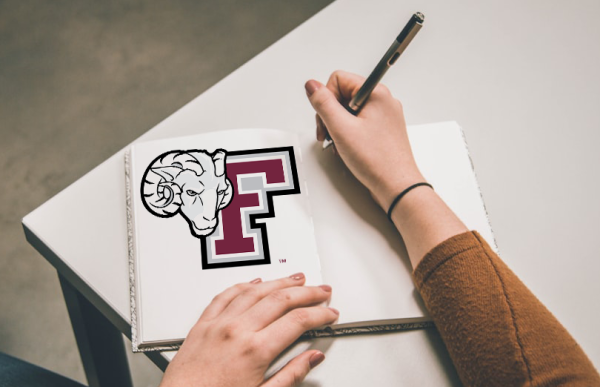Student Researches Glucose Sensors
By Eliot Schiaparelli
Brett Musialowicz, FCRH ’19, is part of a team working in the Nanotechnology and Renewable Energy Lab under Christopher Koenigsmann, Ph.D., on a project trying to create a new catalyst for glucose sensors.
The team is trying to create longer-lasting glucose sensors for people with diabetes in less developed countries. Musialowicz said an organic material called glucose oxidase is currently used in the sensors that only lasts a few weeks without refrigeration.
They are using nanowires to create a metal catalyst that will last longer than the organic material. The new catalyst will make the sensors more durable, less expensive and widely available.
The idea of creating a usable device that could help people is what appeals to Musialowicz. “That’s really how I got hooked,” he said. “ It was more so we’re going to be working on these projects and putting this time in for something applicable and something we could work toward rolling out and making it available for people who are less fortunate than us.”
Before he began his work on glucose sensors, Musialowicz worked on a solar cell project in the same lab. The project was nanotechnology based, similar to the rest of those in Koennigsmann’s lab. They were trying to create a solar energy fuel cell for cars.
Due to an interest in medicine, he transitioned to the glucose sensor project two years ago. When he started, Musialowicz took over the project from a graduating senior. At that point they were looking at how to make nanowires. Currently, he and the rest of the team are testing the sensor in the lab and looking to publish toward the end of the summer.
Musialowicz said his research mentor, Dr. Koenigsmann, came up with the idea for the project while doing postdoctoral research. “This is his grand plan and we came up with the procedure of how we can accomplish that goal,” Musialowicz said.
Once they publish their scientific research, the project could be picked up by a bigger company, and the device they created could be tested on people.
For almost his entire college career, Musialowicz has spent 8 to 10 hours a week on research. As he heads toward medical school next year, he plans to continue researching from a global outreach perspective.
“It’s taught me to think in a completely different way,” he said. “It’s really taught me to think step by step and the constant thing with research is even if the next step isn’t the success of what you initially planned, you’re learning a lot about what you’re doing so following the direction of your research. It’s ok to not get what you want and follow it down a different path.”
Musialowicz is an old pro at Fordham research. He calls Dean Annunziato, who runs undergraduate research, a good friend. He helped her create research colloquiums and gave her advice and feedback for her research seminars that started this semester.
Musialowicz has also helped the next wave of Fordham undergraduate researchers by giving them advice. The one big piece of advice he has for students interested in doing research is to reach out to their professors.
He said not enough people know about the great research being done. He also said students should not be afraid to ask questions and create direct conversations with their professors.
“I found it freshman year because I took his class first semester and I literally walked up to him and went through the whole page of what everyone was doing. I was just curious,” he said. “So I started going through the list and I was like wow that is such a great thing I could add value to. I really support the idea and I thought it would be really encouraging to be a part of it.”












































































































































































































